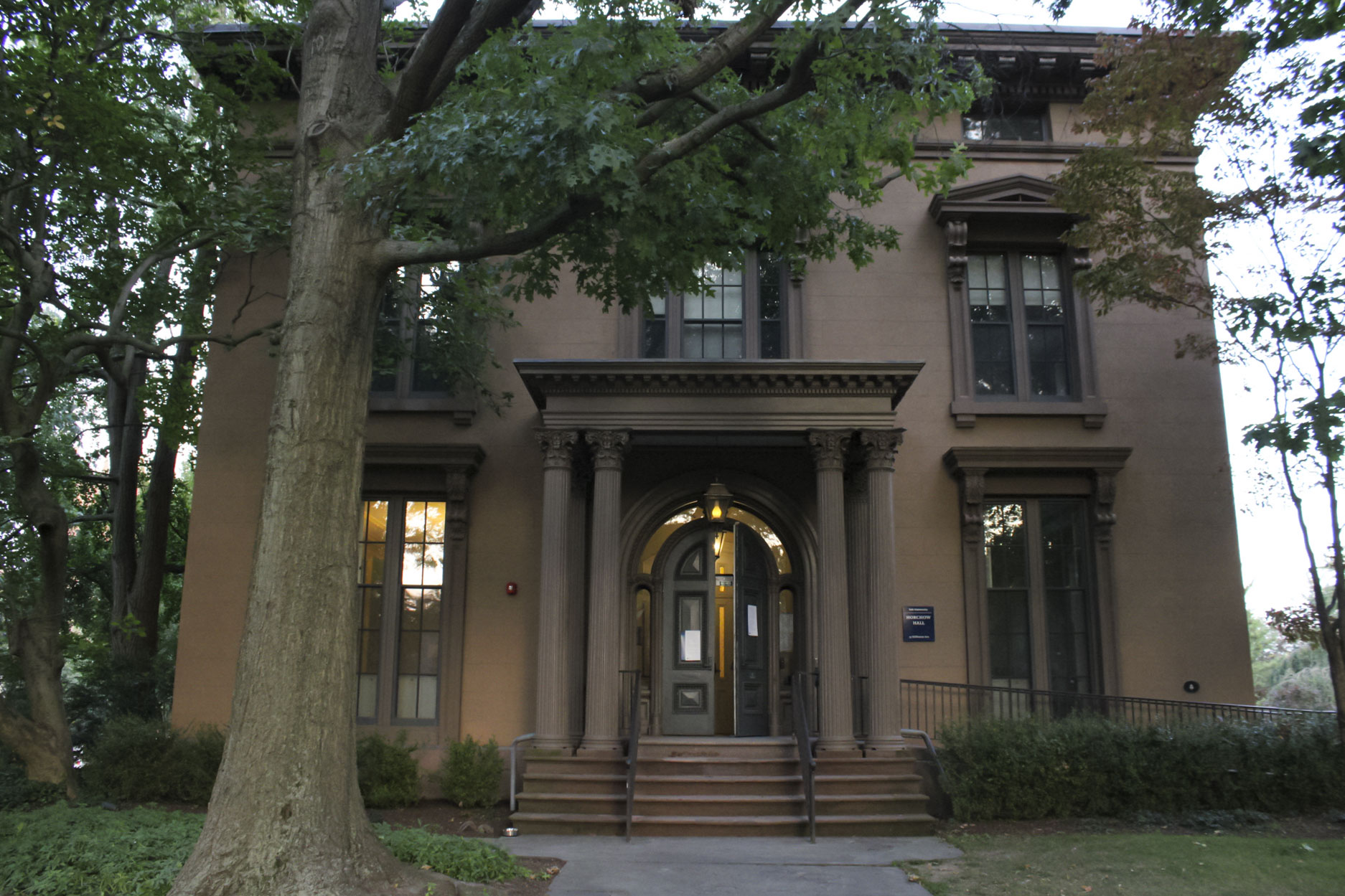
Even facing a global pandemic, administrators of the Jackson Institute for Global Affairs remain hopeful that the Institute’s expansion will continue on schedule.
On April 6, 2019, University President Peter Salovey announced that the Jackson Institute would become the Jackson School of Global Affairs. The statement was made after the Yale Board of Trustees approved a $50 million grant from philanthropist John Jackson ’67 and his wife, Susan, to be instituted for this purpose.
The institute’s core priorities for a successful conversion are to raise an additional $200 million, recruit new faculty members and begin construction of the school. Despite the pandemic, the institute’s leadership is confident that they can face its challenges.
“It’s still early days, but I am optimistic that the pandemic will not impact the Institute’s conversion into the Yale Jackson School,” Institute Director James Levinsohn wrote in an email to the News. “The two core activities that remain high priorities are faculty recruitment and fundraising. So far, those are on track.”
In a largely virtual world, Jackson has needed to be creative with its fundraising efforts. Vice President for Global Strategy Pericles Lewis said in an email that Levisohn has been successful in engaging donors over the last six months through Zoom events.
The institute has also conducted successful virtual programs exploring the intersection of COVID-19 and global affairs, which drew large audiences and eminent speakers.
One of Jackson’s most popular programs, the World Fellows Program, has adapted to the virtual circumstances. Program Director Emma Sky wrote in an email to the News that the fellows spent the spring and summer acquainting themselves with the program’s virtual format. The program has continued its usual activities, specifically the “Good Society” seminar, where they collate their lived experiences in international affairs and analyze how it contributes to a better society. They will also continue to mentor undergraduates through the “Gateway to Global Affairs” course.
Sky also said that the virtual format allowed for opportunities previously unavailable in person. Fellows have easily connected with other fellows from previous cohorts with the same professional interests. The “Good Society” seminar has also used a forum format broadcasted to a global audience outside of Yale.
Still, Levinsohn shared the difficulties of carrying out procedural changes through Zoom.
“I find I can curate and steward existing relationships in a Zoom-based world, but it’s a lot harder to build the new relationships that would otherwise develop,” Levinsohn said.
Another concern for the institute is faculty recruitment. Lewis shared that there are currently 10 permanent faculty members in Jackson. With the pandemic-induced hiring freeze, recruitment has halted. Still, Lewis said that the institute is working with prospective hires and will move quickly towards faculty recruitment after the freeze is over. In the long term, Jackson administrators hope to hire about 30 faculty members.
According to Lewis, one of Jackson’s newest hires is professor of history Arne Westad, who has taught in the Harvard Kennedy School and the London School of Economics. Westad obtained his joint appointment last year under both the Institute and the History Department.
In an interview with the News, Westad provided insights into how the pandemic has affected the Institute’s academic environment.
“The pandemic came, in institutional terms, just when we were starting to build a faculty and begin[ning] to fashion the teaching plans,” Westad said.
Westad added that the pandemic complicates plans to enrich the academic programs at Jackson.
“I’m thinking about the core curriculum that we are trying to build at Jackson — what should go into that concretely in terms of classes, how should that curriculum be built up,” Westad said. “Not being able to test that in person in the classroom is, of course, unfortunate.”
Even so, Jackson’s professors and staff still remain optimistic about its future. Particularly, Westad believes that the Jackson School will provide a unique approach to global affairs.
“Many of the existing schools of this kind do not emphasize enough going beyond the traditional curriculum to try to look at what people can actually contribute to solving global issues,” Westad said. “Our vision for Jackson is that we try to draw on the incredible resources — not just in the institute, but in all departments that exist at Yale — in order to address the pressing issues of our time.”
The Jackson School of Global Affairs is set to open in 2022.
Razel Suansing | razel.suansing@yale.edu







